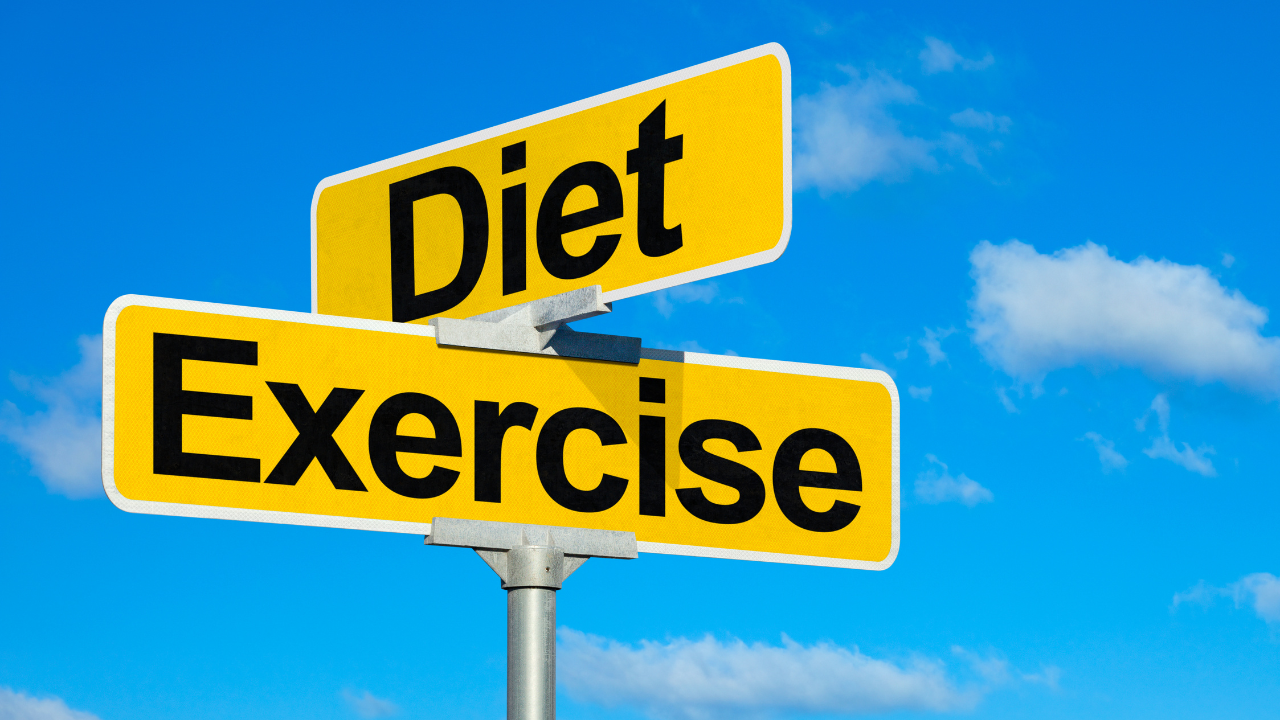Is It True That Weight Loss is 80% Diet and 20% Exercise?

If you've ever Googled, “Is diet or exercise more important for weight loss?" you've probably come across this common phrase that weight loss consists of 80% diet and 20% exercise. But, is this really the case?
It’s no surprise that nutrition and exercise are both important parts of a healthy lifestyle, however, in order to lose weight one must be in a calorie deficit.
So what is a calorie deficit?
Simply put, calories are energy that comes from food and drink, and a calorie deficit happens when you take in fewer calories than you expend each day.
The calories you burn or expend each day (AKA calorie expenditure) include the following three components:
Resting energy expenditure (REE). REE refers to the calories your body uses at rest for functions that keep you alive, such as breathing and blood circulation. This makes up about 60 to 75% of the energy that we expend.
Thermic effect of food. This involves the calories your body expends digesting, absorbing, and metabolizing food. This makes up about 10% of the energy that we expend.
Activity energy expenditure. This refers to the calories you expend during sports like exercise and non-exercise related activities, including fidgeting and performing household chores. This makes up about 15-30% of the energy that we expend.
If you consume fewer calories than your body needs to support these three components above, you will put your body into a calorie deficit.
On the other hand, if you constantly eat more calories than your body needs to support these functions, you’ll be at a calorie surplus and gain weight.
Because of this, your diet is the key to losing weight, and exercise is the cherry on top!
Exception to the 80/20 rule: If you’re someone who engages in boot-camp style classes and HIIT (high intensity interval training) exercises consistently you’re an exception to the rule because these workouts may result in a significant amount of calories burned. However, these types of workouts are not necessary for weight loss if one is in a caloric deficit!
No matter what kind of activity you choose—hiking, biking, weightlifting, walking, swimming, etc.—it's important to find something you actually enjoy doing.
Most people seem to just think about how many calories they burned during a workout, but I urge you to focus on building lean muscle instead. This is because increasing lean muscle mass to your body increases your metabolism, which can aid in weight loss!
Another mistake I tend to see people make is thinking that they can eat whatever they want just because they worked out that day. This often will end up putting you into a calorie surplus which may lead to weight gain so it’s important to be mindful of portion sizes!
Bottom Line: Although it’s more sustainable to create a calorie deficit from your diet, physical activity is still important for overall wellness! Use this information above to structure a healthy and personalized weight loss plan!


